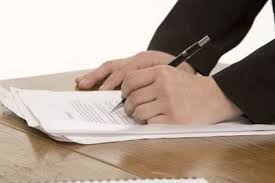How To Use The 3 Main Sections Of A Formal Letter Effectively

Although a formal letter will usually be written as one continuous document, it is subtly broken down into a number of sub sections and you will be expected to use these various sections to effectively pass on your message, following the appropriate conventions.
Following these rules is not absolutely required, but your writing will look more professional and will be easier to read if you do; so here’s how to use the 3 main sections of a formal letter effectively:
Instructions
-
1
The Opening Paragraph
This section should be used to provide the reader with an introduction of yourself(if you are writing in a personal capacity) and a short introduction of your purpose for writing.
If you are writing an application letter, for example, this section should be used to provide a brief background of who you or your company are, the exact post you're applying for, and the source by which you were informed of the opening (if the job was advertised). -
2
The Body
The body of your letter should be reserved for going into the full details of why you are writing. Often, readers will skim through the contents of your opening and closing paragraphs but pay a bit more attention to the body of your letter.
You should therefore use the body of your letter to make your point(s) as clearly as you can, but without being too wordy. Bear in mind that your reader is likely to be a busy person who might not have the time or the patience to read through an overly elaborate letter.
There is no fixed number of paragraphs that the body of a formal letter should contain but unless you have a large amount of technical details that you must go into, you should try to make your point in one paragraph or two, at most. -
3
Conclusion
If there is an additional point that you would like to add to the information already stated in the body of your letter, you may do so briefly in the conclusion. This is also the place where you would offer information concerning your availability for further communication, such as your free times and contact details.



